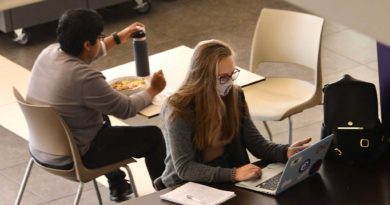Live Covid-19 Updates and Tracker
In recent days, France has recorded about 3,000 new infections every day, roughly double the figure at the beginning of the month, and the authorities are investigating an increasing number of clusters.
Thirty percent of the new infections are in young adults, ages 15 to 44, according to a recent report. Since they are less likely to develop serious forms of the illness, deaths and the number of patients in intensive care remain at a fraction of what they were at the height of the pandemic. Still, officials are not taking any chances.
“The indicators are bad, the signals are worrying, and the situation is deteriorating,” Jérôme Salomon, the French health ministry director, told the radio station France Inter last week. “The fate of the epidemic is in our hands.”
France has suffered more than 30,400 deaths from the virus — one of the world’s worst tolls — and experienced an economically devastating lockdown from mid-March to mid-May. Thanks to the lockdown, however, France succeeded in stopping the spread of the virus and lifted most restrictions at the start of summer.
The course of the pandemic in Europe has followed a somewhat similar trend, with Spain also reporting new local clusters. But important disparities exist among countries. In the past week, as France reported more than 16,000 new cases, Britain reported 7,000, and Italy 3,000, according to data collected by The New York Times.
In other developments around the world:
-
While Hong Kong’s latest outbreak appears to be tapering off generally, testing has revealed a new cluster among the port city’s dock workers, who often live in cramped dormitories. As of Monday, 57 dockside laborers were among 65 cases linked to the city’s Kwai Tsing Container Terminals. On Monday, the Union of Hong Kong Dockers called on container companies to expand their accommodation for employees and to hire workers directly instead of outsourcing recruitment to smaller firms.
-
Sweden has temporarily recalled its diplomats from North Korea, citing increasing difficulties with travel and diplomatic postings, in part because of the pandemic. The Swedish embassy remains open with local staff, and “Sweden is engaged in dialogue with North Korea on these subjects,” a spokesman for the Swedish Ministry for Foreign Affairs said.
-
Officials in New Zealand on Tuesday pushed back against President Trump’s assertion that the remote Pacific country was “having a big surge.” New Zealand, where the national election has been delayed from September to October because of a growing cluster in Auckland, has reported 22 deaths and fewer than 1,700 cases during the entire pandemic. “I’m not concerned about people misinterpreting our status,” Prime Minister Jacinda Ardern said.
-
After a surge in infections in the past week, South Korea tightened social-distancing rules in the Seoul metropolitan area, banning all gatherings of more than 50 people indoors and more than 100 outdoors and shutting down high-risk facilities such as nightclubs, karaoke rooms and buffet restaurants. Prime Minister Chung Sye-kyun also said that churches must switch to online prayer services.
-
Greece has locked down two facilities for migrants where new infections have been traced, after another overcrowded reception center was put under lockdown last week, the government said. The infections are part of a recent spike in the number of cases in Greece, which has weathered the pandemic relatively well so far, with just over 7,200 confirmed cases and 230 deaths. But the authorities this week introduced new restrictions to address local outbreaks and have warned of more measures if the upward trend continues.
-
Countries putting their own interests ahead of others in trying to ensure supplies of a possible coronavirus vaccine are making the pandemic worse, the director general of the World Health Organization said on Tuesday, Reuters reported. “No one is safe until everyone is safe,” the agency’s leader, Dr. Tedros Adhanom Ghebreyesus, said during a briefing in Geneva. The organization also said the pandemic was now being driven by young people, many of whom were unaware they were infected, posing a danger to vulnerable groups.
New research emerges on a rare immune syndrome that strikes some children with the virus.
Multisystem inflammatory syndrome, the severe illness that strikes some children with the coronavirus, is distinct from both Kawasaki disease and from Covid-19 in adults, according to a new study.
Most children infected with the coronavirus have mild symptoms, if any at all. But on very rare occasions, some develop so-called MIS-C, characterized by widespread inflammation in the heart, lungs, brain, skin and other organs. In the United States, there were 570 confirmed cases of the syndrome and 10 deaths as of Aug. 6.




